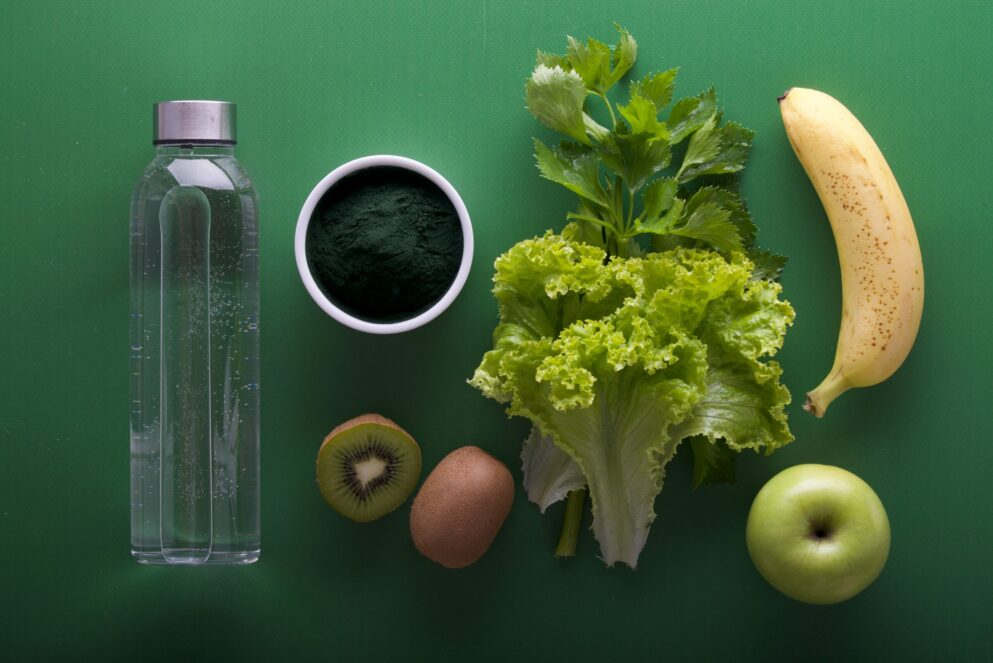Health and Wellness
The Importance of Staying Hydrated: How Much Water Should I Drink?

Last Updated on April 30, 2024 by Nurse Vicky
The Importance of Staying Hydrated: How Much Water Should I Drink?
Water is essential for our overall health and well-being. It plays a crucial role in maintaining bodily functions, regulating body temperature, and aiding in digestion.
But have you ever wondered how much water you should drink to stay hydrated? In this article, we will explore the importance of hydration and provide some guidelines to help you determine your daily water intake.
Why Hydration Matters
Proper hydration is vital for maintaining optimal health. Water helps transport nutrients to cells, flushes out toxins, lubricates joints, and supports organ function.
When you are dehydrated, your body may experience a range of symptoms, including fatigue, dizziness, dry skin, and even cognitive impairment.
Staying hydrated is particularly crucial during physical activity or in hot weather when your body loses water through sweat. It helps prevent heatstroke and supports your muscles and joints during exercise.
Additionally, drinking enough water promotes healthy digestion and can even aid in weight loss by reducing calorie intake.
Determining Your Daily Water Intake
The amount of water you need to drink each day can vary depending on various factors, such as your age, weight, activity level, and climate. While the “eight glasses a day” rule is a common guideline, it may not be suitable for everyone.
A more accurate way to determine your daily water intake is to follow the Institute of Medicine’s recommendation, which suggests a daily water intake of about 3.7 liters (or 13 cups) for men and 2.7 liters (or 9 cups) for women.
However, it’s important to note that these values include water from both beverages and food.
It’s also essential to listen to your body’s signals. Thirst is a clear indicator that you need to drink more water. Additionally, the color of your urine can provide insights into your hydration level.
If your urine is pale yellow or clear, it indicates that you are adequately hydrated. On the other hand, dark-colored urine may indicate dehydration.
Tips for Staying Hydrated
Now that you understand the importance of staying hydrated and how to determine your daily water intake, let’s explore some practical tips to help you maintain optimal hydration:
- Carry a reusable water bottle with you throughout the day to remind yourself to drink water regularly.
- Set reminders on your phone or computer to prompt you to drink water at regular intervals.
- Flavor your water with slices of fruits or herbs to make it more enjoyable.
- Include hydrating foods in your diet, such as watermelon, cucumbers, and oranges.
- Avoid excessive consumption of caffeinated and alcoholic beverages, as they can contribute to dehydration.
- Drink water before, during, and after physical activity to replenish the fluids lost through sweat.
- Monitor your urine color to ensure you are adequately hydrated.
By incorporating these simple habits into your daily routine, you can easily maintain proper hydration and support your overall health.
Frequently Asked Questions
1. Can I drink other beverages instead of water to stay hydrated?
While water is the best choice for staying hydrated, other beverages, such as herbal tea or infused water, can contribute to your daily water intake. However, it’s important to limit the consumption of sugary or caffeinated beverages, as they can have adverse effects on hydration.
2. Are there any health conditions that require increased water intake?
Certain health conditions, such as kidney stones or urinary tract infections, may require increased water intake. It’s best to consult with your healthcare provider to determine the appropriate amount of water for your specific condition.
3. Does the water content in food contribute to daily hydration?
Absolutely! Many fruits and vegetables have high water content, which can contribute to your daily hydration. Foods like watermelon, cucumbers, and oranges are not only delicious but also help keep you hydrated.
4. Can I drink too much water?
While rare, drinking excessive amounts of water can lead to a condition called water intoxication or hyponatremia. This occurs when the balance of electrolytes in your body is disrupted. It’s important to drink water in moderation and listen to your body’s signals.
5. Can dehydration affect cognitive function?
Yes, dehydration can impair cognitive function, leading to difficulties in concentration, memory, and overall mental performance. It’s important to stay hydrated, especially during tasks that require mental focus.
6. Is it possible to stay hydrated without feeling thirsty?
Absolutely! Thirst is a late indicator of dehydration. It’s best to drink water regularly throughout the day to maintain optimal hydration levels, even if you don’t feel thirsty.
Conclusion
Staying hydrated is essential for our well-being, and understanding how much water to drink can help us maintain optimal hydration levels. While the recommended daily water intake may vary depending on individual factors, following general guidelines and listening to your body’s signals can help you stay on track.
Remember to drink water regularly, especially during physical activity or in hot weather, and monitor your urine color to ensure you are adequately hydrated. By prioritizing hydration, you are taking a significant step toward supporting your overall health and well-being.
Health and Wellness
Achieving Optimal Health: A Comprehensive Guide

How to Achieve Optimal Health: A Comprehensive Guide
Welcome to our blog post on achieving optimal health. In this article, we will explore various aspects of maintaining a healthy lifestyle, including nutrition, exercise, and self-care. Our goal is to provide you with valuable insights and practical tips that can help you improve your overall well-being. So, let’s dive in!
The Importance of a Balanced Diet
When it comes to achieving optimal health, a balanced diet plays a crucial role. Consuming a variety of nutrient-rich foods ensures that your body receives all the essential vitamins, minerals, and antioxidants it needs to function properly.
Incorporating fruits, vegetables, whole grains, lean proteins, and healthy fats into your meals can help prevent chronic diseases and promote overall vitality.
Additionally, it’s important to stay hydrated by drinking an adequate amount of water throughout the day. Water helps maintain proper bodily functions, aids digestion, and supports healthy skin.
The Power of Regular Exercise
Regular physical activity is another key component of a healthy lifestyle. Engaging in exercise not only helps maintain a healthy weight but also improves cardiovascular health, boosts mood, and enhances overall strength and flexibility.
There are various forms of exercise you can incorporate into your routine, such as cardiovascular exercises like running, swimming, or cycling, strength training exercises using weights or resistance bands, and flexibility exercises like yoga or Pilates.
Find activities that you enjoy and make them a regular part of your schedule to reap the numerous benefits of exercise.
The Role of Self-Care in Achieving Optimal Health
Self-care is often overlooked but is essential for maintaining optimal health and well-being. Taking time for yourself and engaging in activities that promote relaxation and stress reduction can have a significant impact on your overall health.
Some self-care practices you can incorporate into your routine include practicing mindfulness or meditation, getting enough sleep, spending time in nature, pursuing hobbies or interests, and nurturing relationships with loved ones. Remember, self-care looks different for everyone, so find what works best for you and prioritize it in your daily life.
Additional Tips for Optimal Health
In addition to a balanced diet, regular exercise, and self-care, there are a few more tips that can contribute to your overall well-being:
- Get regular check-ups and screenings to detect any potential health issues early.
- Avoid smoking and limit alcohol consumption.
- Manage stress through relaxation techniques or seeking support from a therapist.
- Practice good hygiene, such as washing hands regularly and maintaining oral health.
- Protect your skin from the sun by using sunscreen and wearing protective clothing.
By incorporating these tips into your lifestyle, you can take proactive steps toward achieving and maintaining optimal health.
Frequently Asked Questions
How often should I exercise to maintain optimal health?
It is recommended to engage in at least 150 minutes of moderate-intensity aerobic activity or 75 minutes of vigorous-intensity aerobic activity per week, along with strength training exercises twice a week.
Can a balanced diet alone help me achieve optimal health?
While a balanced diet is crucial, it is important to combine it with regular exercise and self-care practices to achieve optimal health. These elements work together synergistically.
Are there any specific foods that promote optimal health?
While no single food can guarantee optimal health, incorporating a variety of fruits, vegetables, whole grains, lean proteins, and healthy fats into your diet can provide essential nutrients and contribute to overall well-being.
How can I incorporate self-care into a busy schedule?
Self-care doesn’t have to be time-consuming. Even small acts like taking a few minutes to practice deep breathing, going for a short walk, or indulging in a relaxing bath can make a difference. Prioritize self-care and find moments throughout the day to focus on your well-being.
Can stress harm my health?
Yes, chronic stress can have a detrimental effect on both your physical and mental health. It is important to find healthy ways to manage stress, such as through exercise, relaxation techniques, or seeking support from a professional.
How can I ensure I’m getting enough nutrients from my diet?
A varied and balanced diet is the best way to ensure you’re getting all the necessary nutrients. However, if you have specific dietary restrictions or concerns, consulting with a registered dietitian can help you tailor your diet to meet your individual needs.
Is it necessary to take supplements for optimal health
In general, a balanced diet should provide you with all the necessary nutrients. However, in some cases, supplements may be recommended, especially if you have specific deficiencies or medical conditions. It’s best to consult with a healthcare professional before starting any supplementation.
Conclusion
In conclusion, achieving optimal health requires a holistic approach that encompasses a balanced diet, regular exercise, and self-care practices. By prioritizing these aspects of your life and making them a consistent part of your routine, you can enhance your overall well-being and enjoy a healthier, more fulfilling life.
Health and Wellness
The Impact of Weight Loss on Facial Appearance

The Impact of Weight Loss on Facial Appearance
Weight loss is a journey that not only transforms your body but also has a significant impact on your facial appearance. As you shed those extra pounds, your face undergoes various changes that can enhance your overall appearance and boost your confidence.
In this article, we will explore how weight loss can change your face and provide insights into the fascinating transformations that occur.
The Science Behind Facial Changes
When you embark on a weight loss journey, your body goes through a series of physiological changes. These changes also affect your face, which is composed of muscles, fat, and skin. As you lose weight, the fat cells in your face gradually decrease in size, resulting in a more defined facial structure.
Moreover, weight loss can also lead to a reduction in water retention, which can contribute to a more sculpted facial appearance. As your body sheds excess fluids, your face becomes less puffy, revealing sharper contours and highlighting your natural features.
Enhanced Facial Features
One of the most noticeable effects of weight loss on the face is the enhancement of facial features. As the excess fat diminishes, your cheekbones become more prominent, giving your face a more chiseled and defined look. The jawline becomes sharper and more defined, adding to the overall attractiveness of your facial structure.
In addition to these changes, weight loss can also have a positive impact on your eyes. As the fat around your eyes decreases, they appear larger and more vibrant. This can create a more youthful and energetic appearance, making your eyes the focal point of your face.
Improved Skin Health
Weight loss not only affects the underlying structures of your face but also has a profound impact on your skin health. When you lose weight, your skin adapts to the new contours of your face, which can result in a reduction of sagging or loose skin. This can give your face a smoother and more toned appearance.
Furthermore, weight loss can also improve the overall complexion of your skin. As you adopt a healthier lifestyle and make conscious choices about your diet, your skin receives the necessary nutrients and hydration to thrive.
This can lead to a more radiant and glowing complexion, further enhancing the transformation of your facial appearance.
Boosted Confidence and Self-Esteem
As your face undergoes these remarkable changes, the impact goes beyond physical appearance. Weight loss can significantly boost your confidence and self-esteem, allowing you to feel more comfortable and proud of your appearance.
The positive feedback you receive from others further reinforces your newfound confidence, creating a positive cycle of self-improvement.
Moreover, the changes in your facial appearance serve as a constant reminder of your dedication and hard work towards achieving your weight loss goals. This can motivate you to maintain a healthy lifestyle and continue on your journey towards overall well-being.
Frequently Asked Questions
1. Will weight loss make me look older?
No, weight loss does not necessarily make you look older. The reduction of excess fat and improved skin health can often result in a more youthful and vibrant appearance.
2. Can targeted exercises help in reducing facial fat?
While targeted exercises can help tone the muscles in your face, they may not specifically reduce facial fat. Weight loss through a combination of a healthy diet and regular exercise is the most effective way to achieve overall fat reduction.
3. How long does it take to see changes in facial appearance after weight loss?
The time it takes to see changes in your facial appearance after weight loss can vary from person to person. However, many individuals start noticing subtle changes within a few weeks to a couple of months.
4. Will weight loss affect my facial symmetry?
Weight loss does not typically affect facial symmetry. However, as your facial features become more defined, it can create the illusion of improved symmetry.
5. Can weight loss cause wrinkles?
Weight loss itself does not cause wrinkles. However, if weight loss is rapid or excessive, it can lead to a decrease in skin elasticity, which may contribute to the formation of wrinkles. It is important to maintain a balanced and gradual approach to weight loss.
6. Are there any non-surgical procedures to enhance facial appearance after weight loss?
Yes, various non-surgical procedures such as dermal fillers and facial contouring treatments can further enhance your facial appearance after weight loss. Consulting with a qualified professional can help you explore these options.
7. Can weight loss affect my facial expressions?
Weight loss itself does not directly affect your facial expressions. However, as your facial muscles become more defined, it may slightly alter the way your face moves during certain expressions.
In Conclusion
Weight loss is a transformative journey that goes beyond just physical changes. As you lose weight, your face undergoes remarkable transformations, enhancing your facial features and improving your overall appearance.
The impact of weight loss on your face extends to improved skin health and boosted confidence, allowing you to embrace your new self with pride. Remember, the key to successful weight loss is adopting a holistic approach that prioritizes both physical and mental well-being.
Health and Wellness
The Complementary Relationship Between Mindfulness and Medical Treatment

Can Mindful Activities Replace Medical Treatment?
Mindfulness has gained significant attention in recent years as a potential tool for improving mental and physical well-being.
With its roots in ancient meditation practices, mindfulness has been embraced by individuals seeking alternative approaches to enhance their health. However, it is essential to understand the limitations of mindfulness and its role in medical treatment.
The Power of Mindful Activities
Mindful activities, such as meditation, yoga, and deep breathing exercises, have been shown to have various benefits for individuals. These practices can help reduce stress, improve focus, and promote overall relaxation.
Many people find solace in incorporating mindfulness into their daily routine, as it provides a sense of calmness and mental clarity.
Moreover, research suggests that mindfulness can have positive effects on certain health conditions. For example, studies have shown that mindfulness-based interventions can be effective in reducing symptoms of anxiety and depression. Additionally, mindfulness techniques have been used in pain management, helping individuals cope with chronic pain.
The Complementary Nature of Mindfulness and Medical Treatment
While mindful activities can offer valuable support to individuals, it is important to recognize that they should not replace medical treatment. Mindfulness should be viewed as a complementary approach rather than a substitute for professional medical care.
Medical treatment, guided by trained healthcare professionals, is based on evidence-based practices and scientific research. It provides targeted interventions, medications, and therapies that address specific health conditions.
Mindfulness, on the other hand, focuses on cultivating awareness and acceptance, promoting general well-being.
By combining medical treatment with mindful activities, individuals can experience a holistic approach to their health. Mindfulness can enhance the effectiveness of medical interventions by reducing stress, improving emotional well-being, and fostering a positive mindset.
The Importance of Collaboration
Collaboration between healthcare professionals and individuals practicing mindfulness is crucial to ensure the best possible outcomes. Healthcare providers can guide patients in integrating mindfulness into their treatment plans and offer support in finding reputable mindfulness programs or instructors.
Furthermore, individuals should communicate openly with their healthcare providers about their mindfulness practices. This dialogue can help healthcare professionals gain a comprehensive understanding of their patient’s overall health and make informed decisions regarding medical treatment.
FAQs
1. Can mindfulness replace medication?
Mindfulness should not replace medication prescribed by a healthcare professional. It can be used as a complementary practice to support overall well-being.
2. Is mindfulness effective for all health conditions?
Mindfulness can be beneficial for many individuals, but its effectiveness may vary depending on the specific health condition. It is important to consult with a healthcare professional for personalized advice.
3. How long does it take to see the benefits of mindfulness?
The benefits of mindfulness can vary from person to person. Some individuals may experience immediate effects, while others may require consistent practice over time to notice significant changes.
4. Can mindfulness be practiced alongside medical treatment?
Absolutely! Mindfulness can be practiced alongside medical treatment and may enhance the effectiveness of the treatment by promoting relaxation and reducing stress.
5. Are there any risks associated with mindfulness?
Mindfulness is generally considered safe for most individuals. However, it is important to learn mindfulness techniques from qualified instructors and inform healthcare professionals about any existing health conditions.
6. Can mindfulness cure diseases?
Mindfulness is not a cure for diseases. It can provide support in managing symptoms, reducing stress, and improving overall well-being.
7. How can I incorporate mindfulness into my daily routine?
There are various ways to incorporate mindfulness into your daily routine, such as practicing meditation, engaging in mindful eating, or taking mindful walks. Find activities that resonate with you and gradually integrate them into your lifestyle.
Conclusion
Mindful activities have the potential to enhance well-being and support overall health. However, it is crucial to recognize their complementary nature to medical treatment. By combining mindfulness with evidence-based medical interventions, individuals can experience a comprehensive approach to their health.
Collaboration between healthcare professionals and individuals practicing mindfulness is key to achieving optimal outcomes. Embracing mindfulness alongside medical treatment can empower individuals to take an active role in their well-being and lead fulfilling lives.
-

 Trending Stories1 year ago
Trending Stories1 year agoCDC: 1 in 4 Americans Still COVID-Free by End of 2022
-

 Health5 years ago
Health5 years agoMeghan Trainor Shares Motivational New Song ‘Blink’
-

 Health2 years ago
Health2 years agoHow Long Does Monkey Pox Last Before It Surfaces in the Body?
-

 Health2 years ago
Health2 years agoWhat Causes Swollen Body? Understanding Edema and its Triggers
-

 Health3 years ago
Health3 years agoNutrition and the Importance of a Fitness Program – 3 Things to Know
-

 Health3 years ago
Health3 years ago5 Weird Reasons Why Pimples Disappear After Marriage
-

 Health3 months ago
Health3 months agoHow Do Pawpaw Seeds Support Cardiovascular Health?
-

 Health2 years ago
Health2 years agoHealth Benefits Of Pawpaw Seed? 7 Things To Know








